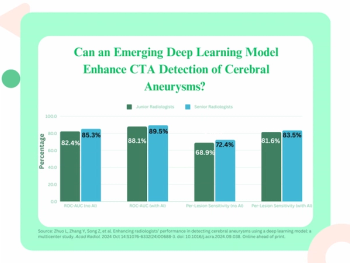
Adjunctive use of deep learning reportedly led to a 37 percent reduction of interpretation time for cerebral aneurysm assessment on computed tomography angiography (CTA) and greater than a 90 percent reduction in post-processing time.
Senior Editor, Diagnostic Imaging

Adjunctive use of deep learning reportedly led to a 37 percent reduction of interpretation time for cerebral aneurysm assessment on computed tomography angiography (CTA) and greater than a 90 percent reduction in post-processing time.
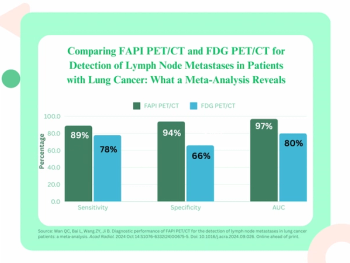
Examining six comparative studies within a new meta-analysis, researchers found that FAPI PET/CT offered 11 percent higher pooled sensitivity and 28 percent higher pooled specificity than FDG PET/CT for diagnosing lymph node metastases in patients with lung cancer.
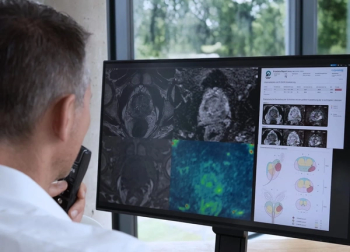
When employing a PI-RADS > 4 cutoff, researchers found that the mdprostate software provided an 85.5 percent sensitivity rate for diagnosing clinically significant prostate cancer on mpMRI.

Leveraging AI technology, the AiMIFY software reportedly facilitates double the contrast enhancement in comparison to gadolinium-based contrast agents (GBCAs) for brain MRI.
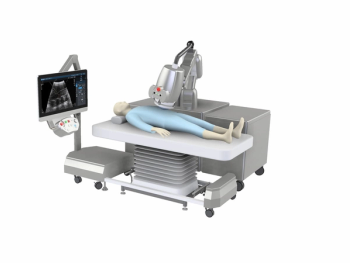
The Sonire Therapeutics ultrasound system is currently being studied for the treatment of patients with unresectable pancreatic cancer refractory or intolerant to first-line chemotherapy.
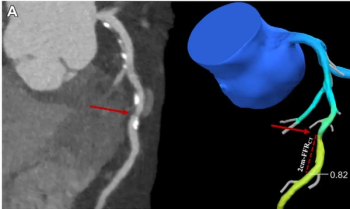
In nearly 5,300 patients with suspected coronary artery disease (CAD), adjunctive use of CT-based fractional flow reserve software significantly reduced the 90-day invasive coronary angiography (ICA) rate in comparison to unassisted use of coronary computed tomography angiography (CCTA).
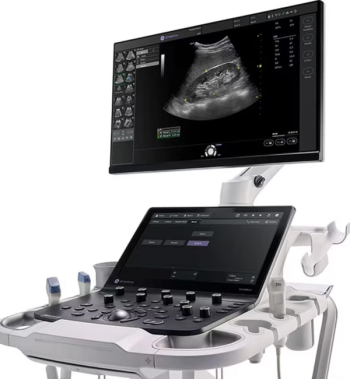
The new ultrasound platform reportedly offers a combination of enhanced imaging and AI-enabled tools to facilitate improved workflow efficiency.

Four Medicare administrative contractors (MACs) will provide coverage of AI-enabled coronary plaque analysis and quantitative coronary tomography assessment of coronary computed tomography angiography (CCTA) for Medicare beneficiaries starting in November 2024.
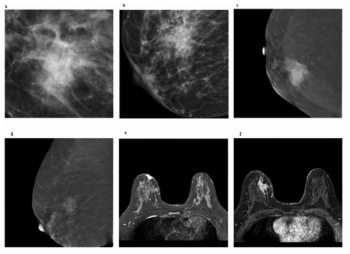
For women with breast-enhanced masses, Kaiser scoring (KS) demonstrated a 20 percent higher AUC than BI-RADS classification for contrast-enhanced mammography (CEM) and was comparable to KS for breast MRI.
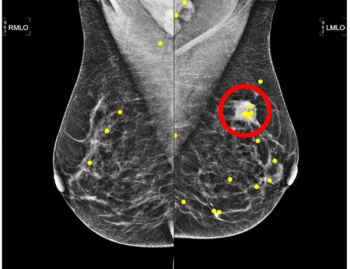
New research suggests that reviewing mammography images in order of ascending volumetric breast density as opposed to random reading of exams demonstrated reduced reading time and less fixation time on malignant lesions.
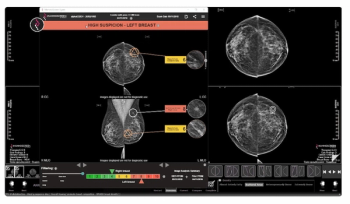
Therapixel’s MammoScreen suite has received 510(k) FDA clearances for a breast density assessment feature and updated software that includes automated pre-reporting, which reportedly expedites reporting of mammography findings.

Researchers found that ultra-high resolution photon-counting significantly enhanced visualization of small vessels and facilitated improved reduction of blooming artifacts for head and neck computed tomography angiography (CTA) scans.
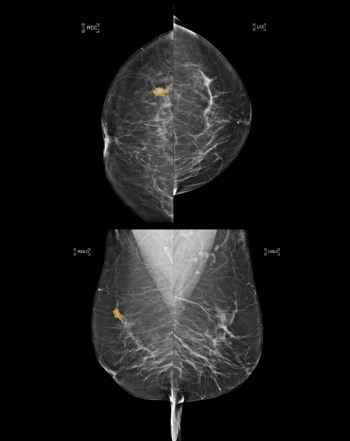
The combination of FDA-cleared AI software for mammography triage with a medical grade edge AI platform may allow the embedding of enhanced AI detection capability within existing mammography devices.
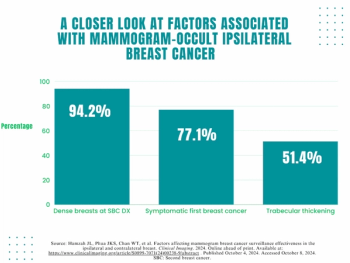
A symptomatic first breast cancer diagnosis, prevailing breast density at a second breast cancer diagnosis and trabecular thickening on surveillance mammography were linked to mammogram-occult ipsilateral breast cancer, according to new research.
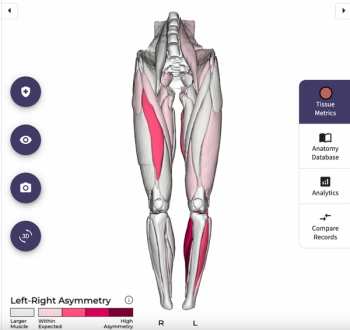
Based off rapid magnetic resonance imaging (MRI), the AI-enabled MuscleView reportedly offers 3D analysis of muscle volume, muscle asymmetry and intramuscular fat.
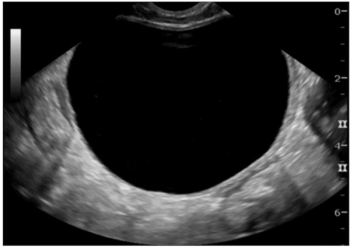
In a multicenter study of over 370 women who had surgery for ovarian cystic lesions without acute symptoms, researchers found that 42 percent of the resected lesions were deemed to have an O-RADS ultrasound risk score of 2, which has less than a one percent chance of malignancy.

With the capability of identifying possible cases of aortic value stenosis (AVS) from existing electrocardiograms (ECGs), the AI-powered screening software from AccurKardia may facilitate earlier diagnosis of AVS, which is fatally missed in 50 percent of patient who have this condition.
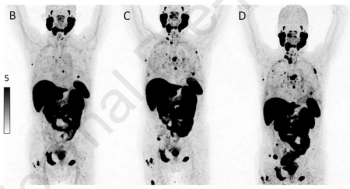
PSMA PET/CT revealed progressive PCa in 31 percent of patients who demonstrated greater than a 50 percent decline in PSA level after treatment with either an androgen receptor-targeted agent or chemotherapy.
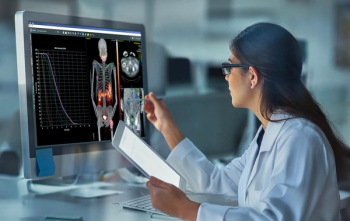
The clearance may facilitate improved standardization and efficiency of dosimetry-guided, theranostic applications of radiopharmaceutical therapy.
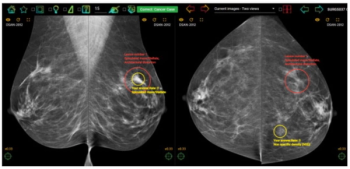
In a study looking at the impact of experience and case volume of breast screening radiologists, researchers found that reviewing more than 150 cases per week was necessary to achieve an 80 percent rate of true-positive assessments for malignant calcifications.
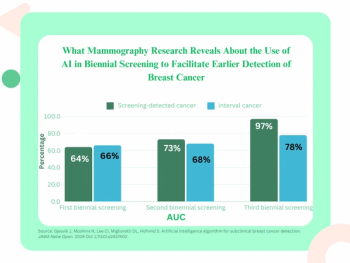
Mean artificial intelligence (AI) scoring for breasts developing cancer was double that of contralateral breasts at initial biennial screening and was 16 times higher at the third biennial screening, according to a study involving over 116,000 women with no prior history of breast cancer.
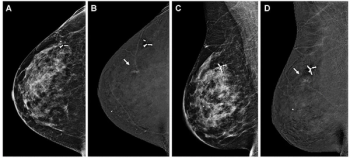
For patients with extremely dense breasts, contrast-enhanced mammography offered greater than 60 percent higher sensitivity than low-energy mammography for diagnosing breast cancer, according to new research.
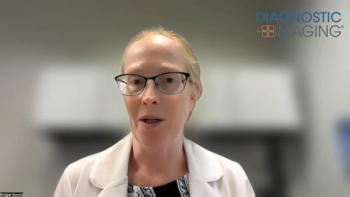
In a recent interview, Bridget Koontz, M.D., discussed the capability of the PET imaging agent 18F-flotufolastat for diagnosing post-prostatectomy recurrence of prostate cancer in patients with PSA values less than 1 ng/mL, based on research presented at the American Society for Radiation Oncology (ASTRO) conference.
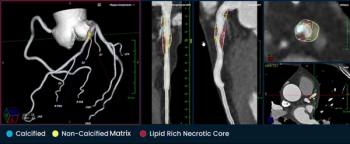
Through analysis of coronary computed tomography angiography (CCTA) images, the PlaqueIQ software provides quantification and classification of atherosclerosis, a common cause of myocardial infarction (MI) and ischemic stroke.
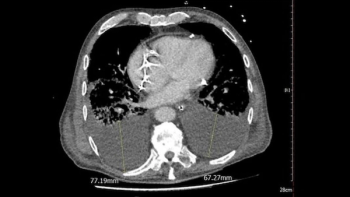
In a multicenter study of over 1,100 patients with COVID-19, pleural effusion was detected on CT scans in nearly a third of patients, who also had significantly higher ICU admission and 30-day mortality rates.
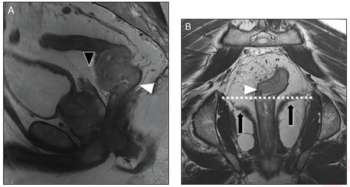
Noting a rapidly changing paradigm for the treatment of rectal cancers, the authors of a new literature review discuss current and emerging principles in MRI assessment and staging.
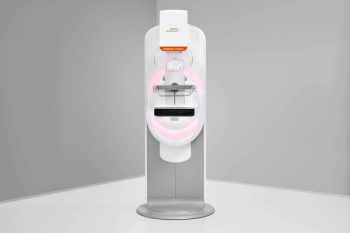
The inclusion of the 3D imaging technology PlatinumTomo in the Mammomat B.brilliant device reportedly enables clinicians to obtain 50-degree 3D images in less than five seconds.
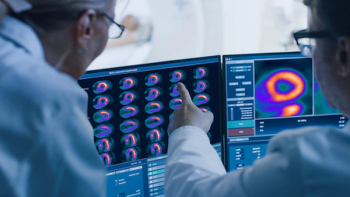
Offering higher diagnostic efficacy than SPECT imaging for coronary artery disease (CAD) detection, the PET myocardial perfusion imaging agent Flyrcado™ (flurpiridaz F 18, GE HealthCare) provides unit dose availability and effectiveness in imaging patients with high BMI.

Omitting biopsy procedures in men with PSA levels > 3 ng/ml and negative MRI findings for prostate cancer (PCa) was associated with significantly lower risks of diagnosing clinically insignificant PCa in comparison to the use of systematic biopsy, according to an approximately four-year study of over 13,000 men who had prostate cancer screening.
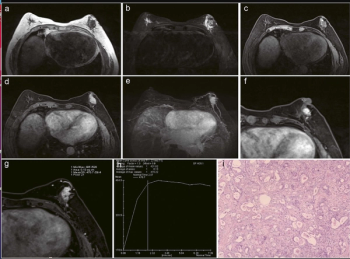
The addition of parameters such as patient age, MIP sign and associated imaging features to the Kaiser score demonstrated a 95.6 percent AUC for breast cancer detection of enhancing lesions on breast MRI in recently published research.